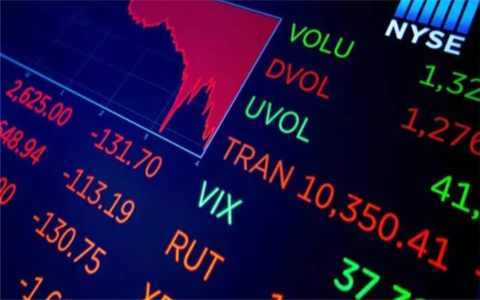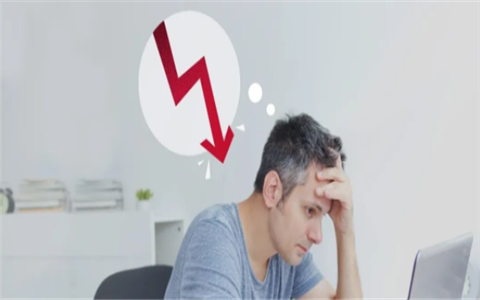
发布时间:2020-08-31
Future is Now《传承宝典》38
——切勿让情绪影响投资决策
本文章发布于2020年7月1日,内容由雷梭勒家族办公室编译整理,版权归原作者Stonehage Fleming家族办公室所有。为实现新冠疫情后财富的保值增值,投资者需放眼长期投资战略。
今年3月股市的抛售热潮后,投资者们反应各不相同,主要分为三类:第一类希望增加下沉市场的投资比率,第二类计划出售投资组合,第三类则处于观望状态,等待市场平稳后再进行投资。正是在这样的时期,投资者们更容易由于认知偏误或情绪偏误作出错误决策,进而导致财富损失。Stonehage Fleming南非区投资管理负责人Lehani Marais认为,越是这样的特殊时期,投资者越要将重点放在长期投资战略上,避免落入行为偏差的陷阱。

Lehani表示,股市走弱时客户更容易看到其投资组合中获利的部分。但是由于担心下跌,有的投资者会希望出售获利部分,“锁定”利润,或者迟迟不肯出手亏损的部分,暗自希望有朝一日能够填平损失。“不管是在商店里没抢到便宜的商品,还是眼睁睁看着投资组合下跌,不愿遭遇经济损失是我们人类的本能,投资者在赔钱时的痛苦远比赚钱时的欣喜来得更加强烈。” 根据Tversky和Kahneman的调查(1992)显示:相同金额下,人们感受“失去”比“得到”的情绪强烈程度高出1倍之多(亏损厌恶)。“股市长期上涨会加剧这种行为偏误,也称作损失规避,人们的满足感会在长期上涨的股市中越来越难以得到满足。相比之下,损失往往是一夜之间的事,所以痛苦的感受要剧烈得多。但是一直出售获利的部分,反而把损失的部分握在手里,长此以往投资组合中便只剩下糟粕了。”
人们有时会对自己的能力过分自信,也称作自信度偏差。“今年三月,标准普尔500指数下跌了34%,有的投资者就产生了能够准确预测市场的错觉,因此他们开始抛售股票、降低风险,希望等到市场跌至谷底并稳定下来后再重新投资。”从逻辑上来看,买低卖高的策略确实讲得通,但是实际上,人们很难准确预测市场短时期内的走向,更何况目前还是处于动荡时期。“目前情况下,过度自信地预测市场走向可能会产生负面的结果,因为市场实际的走向和大部分投资者的预测恰恰相反,现在的市场已经基本填平了过去两个月以来的损失。”

盲从是另一种偏误,指的是盲目跟从他人的行为。人们恐惧疫情扩散的情绪导致金融市场急剧下跌,投资者开始迅速撤离,其他人纷纷效仿。“做人群中的逆行者很难,尤其是在市场急跌的时期。但是买卖永远要有双方才能完成,当双方分别朝向截然不同的方向时,最好的选择就是跟随更低价买入的一方。” 谈到新冠疫情给市场带来怎样的影响时,出现了两种截然不同的观点——积极的和消极的。但是投资者往往只能看到与自己观点相符的信息,这叫做确认偏误。结果就是投资者会越来越确信自己的观点是正确的,从而忽视了其他对立观点。Lehani表示,“作为投资者,务必要认清自己是从积极还是消极的角度看问题,看到半杯水时,是先看到空的一半还是满的一半,这本身很容易造成确认偏误。投资者应该避免过度关注与自己认知相符的内容,转向会出现的多种可能性。尤其是在现在这样的特殊时期,投资者更要了解自己的情绪,确保情绪不会影响投资决策。总结来说,客户持续关注长期投资更容易收获良好的回报。”
Original English Texts
Don’t let emotions dictate your investment decisions - Lehani Marais-Published on 01 Jul 2020
Investors should focus on long-term strategy to preserve wealth post-Covid-19
The market selloff in March resulted in three different investor reactions. Some wanted to increase exposure at the lower market levels, others wanted to sell their holdings, while a third reaction was to wait for markets to stabilize before investing again.
It is in times like these, says Lehani Marais, Director at Stonehage Fleming Investment Management South Africa, that investors risk destroying their wealth due to decisions over influenced by emotional and/or cognitive biases. “It is important for investors to stay focused on their long-term investment strategy and not fall prey to typical behavioral biases”. As the market spiralled downwards, clients became more focused on the winners than the losers in their portfolios, according to Lehani. Fearing they would decline, she explains, some investors wanted to sell the profitable positions, and ‘lock in’ the gains, or in contrast, hold onto their losers in the hope that they would recover the losses. “Whether it is losing out on a bargain in the shop or witnessing investment portfolios decline, we as humans hate to lose. Investors tend to feel the pain of losses significantly more than the joy of gains”.
Research by Tversky and Kahneman (1992) showed that we feel the emotional impact of a loss more than double a gain of the same amount. “This behavioral bias, known as loss aversion, is exacerbated by the fact that equity market gains occur over a longer time period. As a result, they are less satisfying. Losses conversely, are typically experienced over a short and sudden period, making the experience much more painful. Regardless, the long-term result from selling winners and holding losers is ultimately a portfolio of losers” explains Lehani.
The human tendency to have too much confidence in our own abilities is known as overconfidence bias, says Lehani. “Following the -34% decline of the S&P 500 in March, some investors hoped they could accurately ‘time’ the market. Accordingly, they preferred a strategy of cutting their equity exposure when the market was down and reinvesting once the markets had stabilized”. While selling high and buying low makes logical sense, the reality, says Lehani, is that it is very difficult to predict short-term market movements, particularly in highly volatile times. “In this case, an overconfidence in predicting how the market would perform would have yielded negative results as, against most investors’ expectations, the market went on to recover almost all the losses two months later.”
Herding bias refers to doing something because others are doing it. As fears of the spread of the virus crippled financial markets, investors began running for the hills, prompting others to follow suit. “Going against the herd can be extremely difficult, especially in a severe market decline, but for every seller there is a buyer. One could therefore argue that there are two herds moving in opposite directions and it is best to be following the herd that is buying bargains”, observes Lehani.
Looking ahead to the outcome of the Covid-19 pandemic, there are currently two polar views – optimism or pessimism. Investors, says Lehani, typically look for information that confirms their current belief – known as confirmation bias. As a result, they seek views that confirm what they already know, rather than looking for views that contradict theirs. “As an investor, it is important to recognize whether you tend to have a glass half full or half empty view, because this itself is a behavioral bias. Instead of focusing on news that supports your view, you should remember that there are a range of possible outcomes”, she says. “Now more than ever, it is important for investors to be aware of their emotions, and make sure these emotions are not driving their investment decisions. Ultimately, clients tend to achieve better investment results when they remain focused on a long-term strategy”.
该文章转载自雷梭勒家族办公室,如有侵权,敬请告知删除。
Sooswiss为您提供
瑞士方向私人管家式的定制服务:
1)家族传承 2)财富管理 3)瑞士投资
4)居留计划 5)税务优化 6)家族治理
更多资讯请登录网站 www.sooswiss.com
